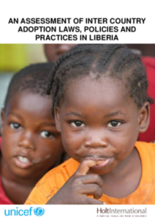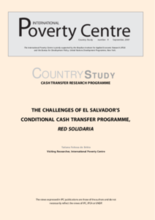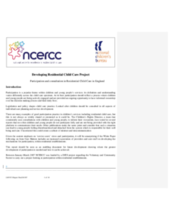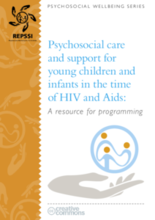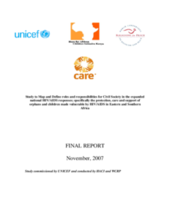Demographic Data
|
Sources: World Bank, UNICEF, UNDP HDR 2015, DHS 2011 |
Displaying 13521 - 13530 of 14348
A report on the situation of the millions of children globally with disabilities, and the challenges faced in realizing their human rights. It gives an overview of international standards, and strategies for advancing the social inclusion of children with disabilities in their families, schools, communities, and wider society.
This report presents the findings of an assessment conducted between 8 July and 22 August 2006 that gathered and analyzed information on inter-country adoption to support strengthening Liberia’s adoption laws and develop operating guidelines for adoption agencies.
Provides analysis of the historical background and current structure of El Salvador's conditional cash transfer programme with attention to family integration
Examines constraints to expansion of the social welfare net in South Africa. Cites substitution taking place within the social budget since education and health expenditures have already declined in favour of increased welfare transfer expenditures.
Evaluates targeting and human capital impacts of Brazil's Bolsa Familia Program in comparison with Mexico's Oportunidades, and Chile's Chile Solidario.
Examination of Chile Solidario social protection programme which shows that the focus of policy makers and researchers should be on integration of cash transfers within broader social protection policies.
This report aims to provide insight into children’s perceptions of participation within England’s residential care system, and to note any potential or perceived barriers to participation.
Clear programme guidance on psychosocial support, with a special focus on infants and young children. Excellent explanation of psychosocial support models.
Highlights key features of the the Bolsa Familia conditional cash transfer (CCT) Program, such as its design and implementation.
This study commissioned by UNICEF, Hope for African Children Initiative (HACI), and World Conference on Religions and Peace (WCRP) maps and defines roles and responsibilities for Civil Society in the expanded national HIV/AIDS responses. The report pays particular attention to the protection, care and support of orphans and children made vulnerable by HIV and AIDS in Eastern and Southern Africa.


